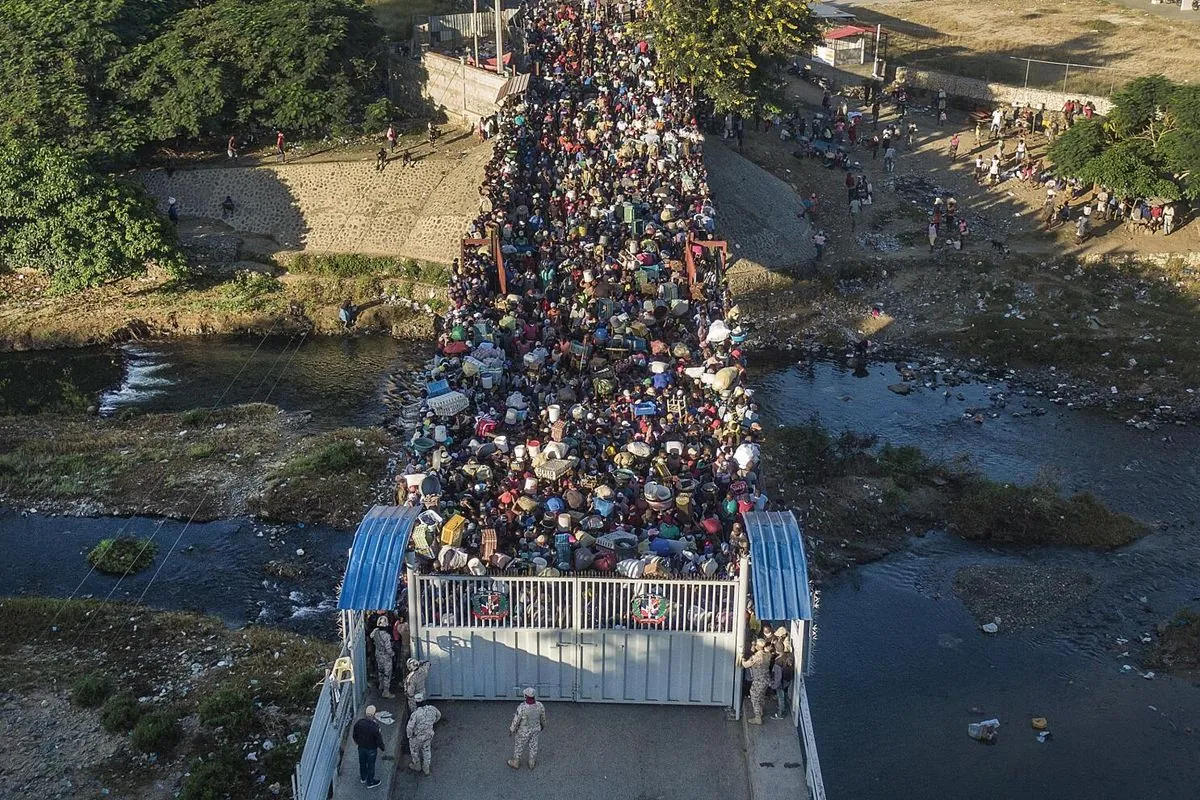Dominican Leader Warns of 'Drastic Measures' if Haiti Mission Fails
Dominican Republic's president issues stern warning about potential actions if UN-backed mission in Haiti fails. Concerns rise over Haiti's stability and its impact on the region.

Luis Abinader, the president of the Dominican Republic, has issued a stark warning regarding potential "drastic measures" his administration might take if the United Nations-backed mission in neighboring Haiti fails to address the ongoing gang violence. This statement was made during his address at the UN General Assembly in New York on September 25, 2024.
The situation in Haiti has deteriorated significantly since the assassination of President Jovenel Moïse in July 2021. Gangs now control approximately 80% of Port-au-Prince, the capital city, leading to the displacement of nearly 700,000 Haitians in recent years. Many have sought refuge in the Dominican Republic, which shares the island of Hispaniola with Haiti.

Abinader expressed gratitude towards Kenya for leading the UN mission in Haiti, with nearly 400 police officers from the East African nation. Jamaica and Belize have also contributed personnel, but the current deployment falls short of the 2,500 pledged by various countries. The U.S. government has noted that the mission lacks resources and is considering a possible UN peacekeeping operation.
The Dominican leader emphasized the need for the mission to be fully established to enable free and transparent elections in Haiti. The country has not held elections since 2016, and a transitional presidential council has been tasked with organizing them by February 2026. However, Abinader expressed concern that the conditions for elections are not yet in place, despite the approaching deadline.
"We cannot allow the effort made to date to fail. If that were to happen, Haiti's collapse would be imminent."
The ongoing crisis in Haiti has had significant repercussions for the Dominican Republic. Abinader revealed that last year, 10% of medical appointments in his country involved Haitians, and 147,000 out of 200,000 foreign minors in the Dominican education system are of Haitian origin.
The Dominican Republic has taken a firm stance on immigration, with official data showing the deportation of over 170,000 people believed to be Haitians in the previous year. However, the UN's International Organization for Migration estimates this number to be closer to 224,000.
Human rights activists have criticized Abinader's administration for alleged violations of the rights of Haitians and those of Haitian descent born in the Dominican Republic. The president has consistently rejected these accusations, reiterating his government's commitment to protecting human rights.
Despite the challenges, Abinader highlighted some positive developments in the Dominican Republic. The country's poverty rate has dropped to 19%, the lowest in its history. Additionally, the murder rate has decreased from 13 per 100,000 inhabitants in 2022 to 10 per 100,000 in 2024.
As the situation in Haiti remains volatile, the international community continues to grapple with finding effective solutions to address the ongoing crisis and its impact on the region.


































